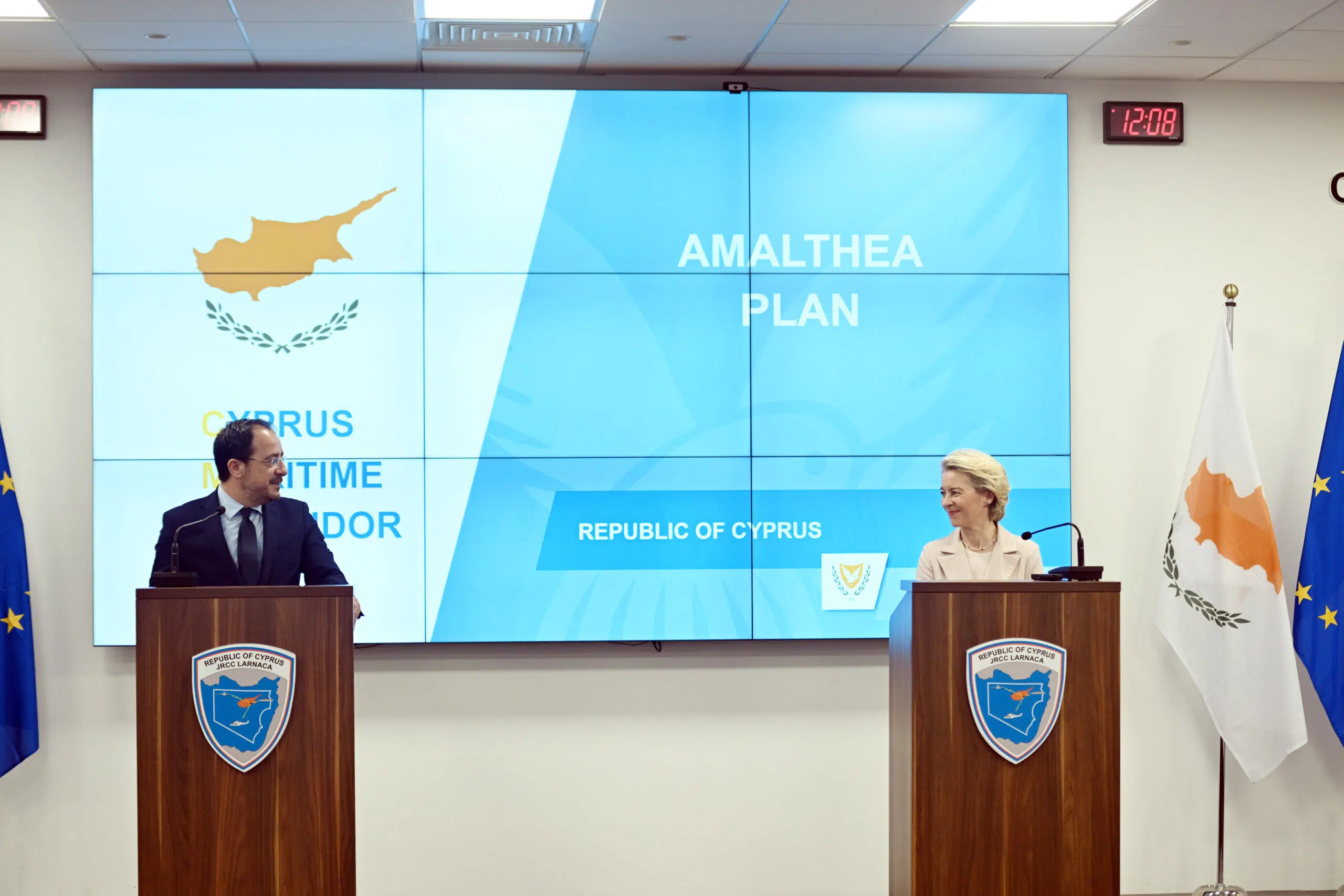Brussels – The “pilot project” expected to lead to the opening, over the weekend (March 9-10), of the Cypriot maritime corridor to provide assistance to the people of Gaza kicks off. As announced by the President of Cyprus, Nikos Christodoulides, and the President of the European Commission, Ursula von der Leyen, the first ship is ready to set sail from the port of Larnaca.
Five months after the Hamas terrorist attack and the Israeli response, which is causing a humanitarian catastrophe in the Gaza Strip, the international community has still failed to ensure the continued safe entry of sufficient humanitarian aid for the two million displaced Palestinians. Less and less land-based aid is entering, as recently reported by UNRWA, while several international organizations have sounded the alarm about the risk of a real famine in the Palestinian enclave. “We know about the difficulties on Gaza’s land borders, whether through the Rafah crossing or the Jordan road corridor,” von der Leyen admitted at a press conference.

The possibility of opening a maritime corridor in the Mediterranean, put on the table by Cyprus as early as October, has thus been explored for months and finally launched today with the support, in addition to the European Commission, of Germany, Greece, Italy, the Netherlands, the United Arab Emirates, the United Kingdom and the United States. “It is clear that we are at a point where we simply have to unlock all possible avenues,” Christodoulides said. Decisive was the timing of Joe Biden, who announced, in his State of the Union address, an emergency mission led by the U.S. military to construct a “temporary pier” off Gaza for supplies.
Specifically, the mechanism outlined by the Cypriot authorities to safely ship aid by sea will be coordinated by the UN Senior Humanitarian and Reconstruction Coordinator for Gaza, Dutch diplomat Sigrid Kaag. As the joint statement launching the Amalthea initiative reads, he will be tasked with “facilitating, coordinating, monitoring, and verifying the flow of aid into Gaza under UN Security Council Resolution 2720.” Once the fast track is broken in, Cyprus will “soon convene senior officials to discuss how to accelerate this maritime channel.” Operations will necessarily have to be “closely coordinated” with the government of Israel, which controls maritime access to Gaza’s shores. Tel Aviv’s Foreign Ministry issued a note in which it said it was “in favour of the inauguration of the maritime corridor,” which “will allow the increase of humanitarian aid to the Gaza Strip, after security checks are carried out according to Israeli standards.”
On the other hand, partners supporting the Cypriot initiative called on Israel to “facilitate more routes and open more crossings to get more aid to more people.” From Brussels, there’s the hope that the maritime corridor can “really make a difference to the situation of the Palestinian people.” But in parallel,” von der Leyen stressed from Larnaca, “our efforts to provide assistance to the Palestinians through all possible avenues will continue. By land, with more than 1,800 tons of aid delivered to Egypt in 41 airlifts, and in the future also from the air, as already done by the United States, France, and Jordan: “We will consider all other options, including airdrops if our humanitarian partners on the ground deem them effective,” the EU leader confirmed.
English version by the Translation Service of Withub






